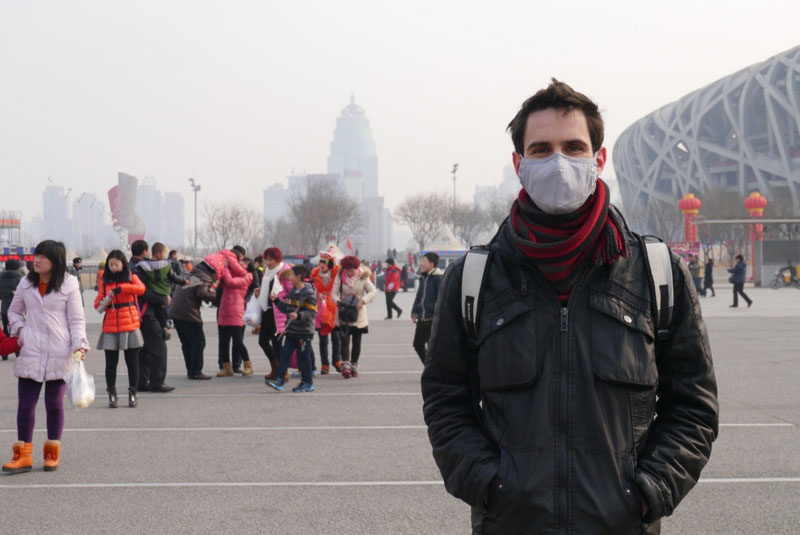

The beginning of my connection with China dates back several years, when I was doing a postdoctoral fellowship in Germany. I met the girl who would become my wife, a CAS Chinese student. However, we didn't get married at that time, as life decided that I should go back to France for a new postdoc, while she went back to China to finish her PhD. One and a half years later, I was on a plane to Beijing with a one-year renewable CAS fellowship for young international scientists.
I was really pleased at the ease of getting funded in China, compared with Europe, where there is fierce competition and budget restriction. I personally think that programs such as PIFI are great opportunities for foreigners, and I hope PIFI will encourage scientists to consider research possibilities in China. Indeed, it reminds me of the first question from my principal investigator after she read my CV: “Can you tell me why you want to come to Beijing instead of going to a famous lab in the USA or Europe?” Clearly, China is still not on the wish list for foreign PhD or Postdoc applicants, and the ratio of foreigners compared to European Institutes of the same size is really low.

But professionally speaking, it was not a bad choice at all. The scientific environment in IMCAS (CAS Institute of Microbiology) is very comfortable. Moreover, Chinese scientists are really open to discussions and collaboration. Although language can be source of misunderstanding, it is not a problem with most researchers; and we can really see the benefits of the long-term policy of encouraging students to do their PhD and postdoc aboard (mainly the US but also Europe), with better chances to have a position when they come back. I was also surprised by the high number of visiting foreign lecturers, much more than I saw in my previous lab. All of these factors make me feel like I’m in a lab in the US or Europe, or at least not as isolated as I expected. This is also probably due to the fact that in my Chinese lab all members are very friendly and accepted me from the beginning. It’s a young team, started five years ago when professor Feng Jie came back from Canada with a limited number of researchers (only two associate professors, and another Chinese postdoc). They may be limited in number but they’re highly motivated, always ready for discussion, and they accept any event as an excuse for going to a hot-pot restaurant.
I contacted this lab because of the topic and the location (Beijing), and it was only when I searched for funding that Feng told me about the PIFI fellowships. She also introduced the Research Fund for International Young Scientists, granted by the National Natural Science Foundation of China (NSFC), which provided me fund to carry out my own project.

However, apart from the lab, life in China is very different. Being raised in a small European city, I could hardly adapt to a city as huge as Beijing. It is still difficult for me to deal with so many people around. Going for a walk in Olympic Park can be more like visiting a theme park than enjoying a quiet moment. To find a more natural environment, one has to drive for two and half hours to reach the mountains, because the countryside around the city is exclusively dedicated to farming. Finally, the biggest inconvenience is the air pollution. But I assume that these problems are common concerns for all megalopolises in the world, and are not specific to China. On the other hand, living here has allowed me to capture pieces of Chinese culture before its complete replacement by the mainstream Western way of life. I am proud to have learned how to play Majiang and Chinese chess, while most of the young Chinese don’t. It is also a pleasure to see kites flying in the night sky, calligraphers painting temporary poems on the ground with watered brushes, or old people bringing their singing birds out for a song. Finally, as a French, though I miss bread, good wine, and most of all cheese, Chinese cuisine is so rich, diverse, fine and beautiful that I am ready to swap my fork and knife for a pair of chopsticks.
After two full years in Beijing, I plan to go back to France with my wife and find a permanent position in research. I know that it will not be easy but my experience here in China, and at CAS in particular will, I hope, be beneficial. First because I made a lot of contacts with professionals who can easily be funded for international collaborations. And second, because China's objective is to reach world leadership in research in the near future. My understanding of how Chinese labs work will be precious.
By Dr. Sebastien Leclercq